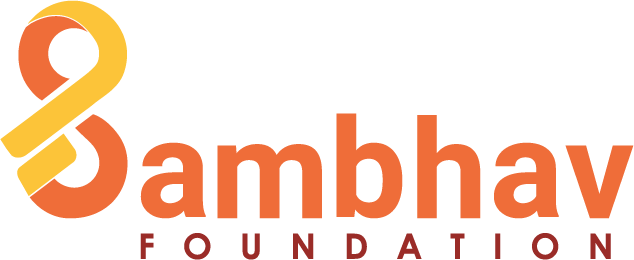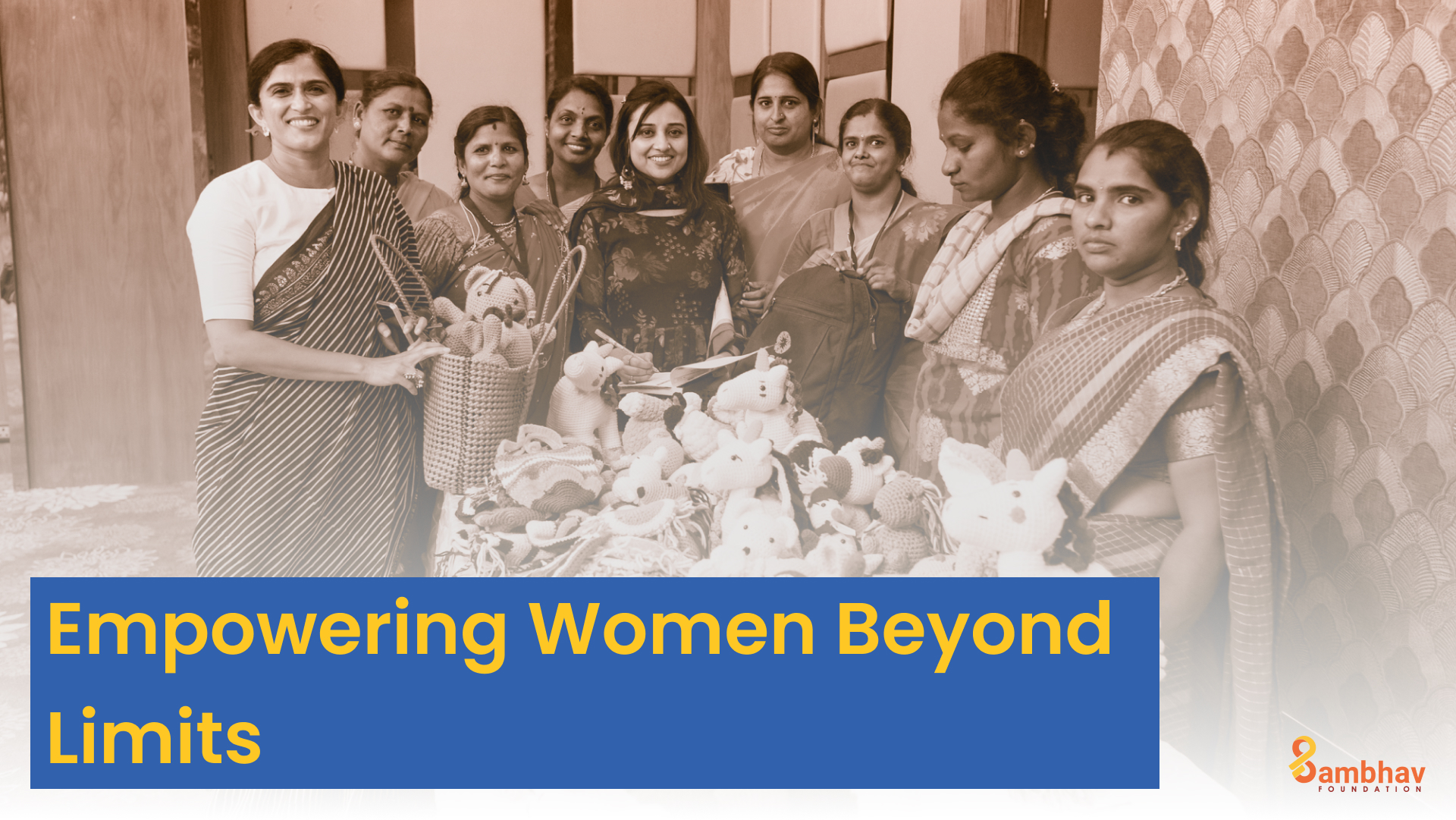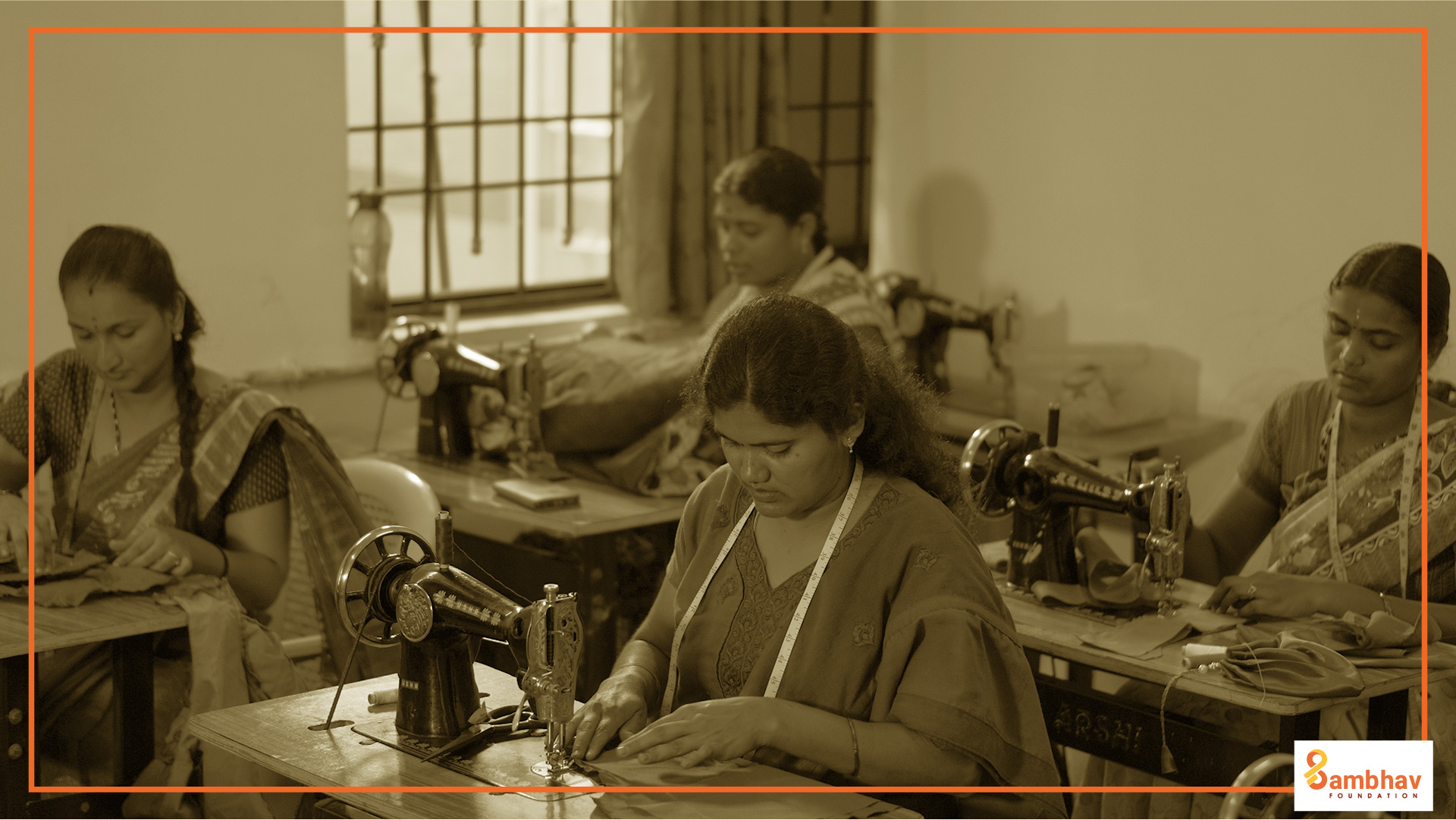She woke up at 5:00 AM to cook all 3 meals for her family before leaving for work. She knew it would be a long day, walking miles to work in a red zone with unpredictable public transport. The public health centre was all out of PPE kits and shields, the availability has been running low. So, she buys a mask and sanitizer with the little money she has. The costs of both have skyrocketed, but she has no choice, the risks to her and her family are high. As she goes house to house collecting data on symptoms and vitals, they shut the door on her face. There is an aura of uncertainty and fear, no one even offers her a glass of water. But, she has to keep going to meet her target for the day. Tomorrow, she’ll have to do it all again. All this for a mere 1000/- per month.
9 lakh ASHA workers exist today, and they’re underpaid, under-resourced, underutilized, and the work they could be doing is grossly underestimated. From reducing the growing burden of disease on India to improving awareness and access to nutrition, ASHA’s potential has remained untapped for too long. A cadre that could be a crucial part of initiatives to engage communities and strengthen health systems languishes despite everyone involved understanding the implications. As honoraria-based workers, the risks they take are disproportionate to the rewards.
They have the ability to collect health indicators that can aid in the detection of non-communicable diseases like cataracts, hypertension, diabetes, and varicose veins. This could create opportunities in healthcare, reduce avoidable death, improve regional productivity, and boost the economy. Their role in arresting the spread of communicable diseases like tuberculosis and COVID-19 and boosting immunization rates for preventable diseases remained woefully unexplored, until very recently.
Lack of deployment during the pandemic
The pandemic exacerbated the load on health centers, and threw up complicated logistical, infrastructural, and funding-related challenges.
ASHA’s had the potential to create awareness in communities, become part of the triaging protocol to identify COVID-infected patients, and serve as a connection between PHCs and patients. ASHA’s could have reduced the burden on hospitals and health centers by counseling people on COVID-appropriate behavior and spreading awareness. Promoting safe health practices, door-to-door surveys, contact-tracing, awareness campaigns, and ensuring quarantine/isolation are all measures that would drastically reduce the severity of the pandemic. Extensive on-ground testing and triaging were required to avoid unnecessary crowding of hospitals. Their potential role in immunization and controlling the resurgence of the pandemic is impossible to overstate.
ASHA’s have always had the potential to change the face of healthcare delivery in India. They can do what hospitals can’t, due to their grassroots level on-ground presence. With the right skill training and capacity building, this can be made possible.
The Victory in Vijayapura
A strong case study for the correct utilization emerges from the district of Vijayapura in Karnataka. ASHA workers were the heroes in Vijayapura’s victory against COVID-19. Through customized modules, ASHA workers and volunteers were trained on swab collection and door-to-door triaging. Their training was carried out as a hybrid of face-to-face and online interactions, taking into account pandemic restrictions and the time-sensitive nature of the intervention. Across 66 Gram Panchayats, 119 volunteers and 4 supervisors were trained and deployed to assist ASHA workers.
Armed with thermometers, SpO2 monitors, and triaging kits, the trained workforce surveyed 62000 households and conducted 25000 swab tests. Those with mild symptoms were educated on home quarantine protocols. Patients and their families were provided with logistical and psychological support. Patients with moderate symptoms were connected to the local Primary Health Center, to ensure their condition did not deteriorate.
ASHA’s in Vijayapura also worked to overcome vaccine hesitancy in communities. They drove footfall to vaccination camps, provided management support at the camps, assisted in capturing patient data, and conducted follow-ups for people who need post-vaccination support.
Their efforts demonstrated a positive impact on controlling the spread of infection, resulting in an almost 97% reduction in active Covid-19 infections. 500,000+ vaccines were administered in the district through multiple camps over a period of two months. The district’s fatality rate was reduced from 2.56 per day to 0.56 per day.
It is possible and necessary that we replicate Vijayapura’s success across the country.
The way forward
It’s criminal to have a ready cadre of medical social workers, know their potential, have all the technological and operational readiness to leverage them, and still do nothing. ASHA’s can usher in a new age of healthcare, where communities in every corner of the country are freed from the burden of disease and unnecessary death.
ASHA’s can save our lives if we can promise them better livelihoods.
If you’d like to know more about the role of ASHA workers in Vijayapura’s victory against covid-19, check out the full report here: https://sambhavfoundation.org/vijaypura-report-for-sambhav/




